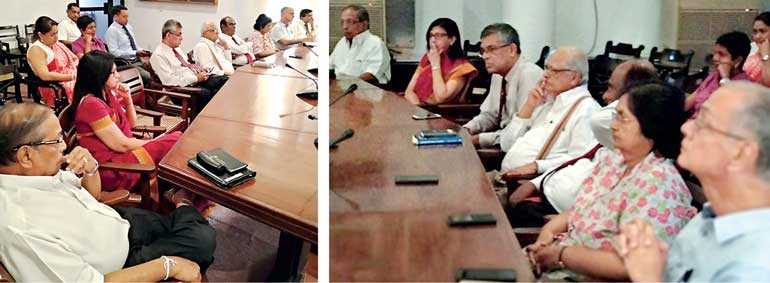Thursday Feb 26, 2026
Thursday Feb 26, 2026
Friday, 6 July 2018 00:00 - - {{hitsCtrl.values.hits}}

 Good boardroom decision-making can be facilitated by appropriate policies and processes. However, even when combined with well-intentioned and competent directors, such policies and processes may not be sufficient to ensure that good decisions are being made.
Good boardroom decision-making can be facilitated by appropriate policies and processes. However, even when combined with well-intentioned and competent directors, such policies and processes may not be sufficient to ensure that good decisions are being made.
Board decision-making is negatively affected by behavioural factors including conflicts of interest, emotional attachments, dominant personalities, anchored attitudes, a reluctance to meaningfully involve independent directors, implicit ‘no-go‘ areas, and unwarranted reliance on prior experience and decisions. Bias in the boardroom particularly weakens the contribution to corporate governance of the independent director.
The 4th Independent Directors (INED) Forum of the Sri Lanka Institute of Directors (SLID) held recently in Colombo saw senior and experienced directors from the corporate business sector actively discussing ‘Dealing with the Absence of Independence in the Boardroom’. The session was chaired by Faizal Salieh, SLID’s Vice Chairman, with keynote remarks made by Manil Jayesinghe, Partner, E&Y, and Suren Rajakarier, Partner KPMG, who set the initial tone for the discussion.
The responsibility to ensure independence falls on the INED as well as the chairman of the board who shapes the board’s behaviour.
It was suggested that the chairman should play an enabling role and should be non-executive. The role should include maintaining the right mix of skills on the board and ensuring that the right skills and competencies are considered when appointing board members. The chairman must ensure that new board members are provided with a sound induction into the company’s business and culture and that the knowledge of all board members’ is updated regularly in order for them to contribute positively and be effective in the boardroom. The chairman should also be genuinely receptive to differing views expressed by directors and facilitate diversity in the deliberations at board meetings in order to enable the board to make the best or most appropriate decisions for the company.
The INED’s duty is to enrich the board process. It is a positive role. The INED must be willing to ask for more information when it is needed, and should have the courage to express a different view without offending people and make sure that his/her dissent is recorded in the minutes. Prior to accepting an appointment, an INED should assess the likely internal environment and culture of the company to see whether or not diversity of opinion is encouraged, the views expressed by INEDs are heard and considered and that he/she would be able to contribute effectively at the boardroom.
It was the view that when looking for board members the board nomination committee should not only focus on the specific functional skills but should span multiple competencies for the board member to be able to add more value to overall board discussions. Furthermore, the board nomination committee should analyse the competencies and skill sets required and have an informal chat with the chosen candidates. It was agreed that the CEO should not get involved in this process. True independence and effectiveness of an independent director can only be measured by the director’s actions in the boardroom and his/her freedom and willingness to leave the board if he/she is forced to compromise on the principles of good governance and not merely through the application of rules or checklists. The session wrap-up summary was done by Faizal Salieh, who said that the development of directors is the key objective of SLID. He stated that there are INEDs on State-Owned Enterprise (SOE) boards as well and that they should be brought into the INED Forum to share their experiences, challenges and issues they have faced and how they were managed.
The next session has been scheduled for Wednesday 25 July evening with key note speaker Arittha Wikramanayake, Precedent Partner, Nithya Partners who will present on how an INED can exercise his right to dissent which will be followed by an interactive question and answer session. Independent Non-Executive Directors serving on private and public sector boards who wish to participate in the INED Forum may contact SLID CEO Chamindā de Silva, on 2301647 and express their interest in joining the Forum.